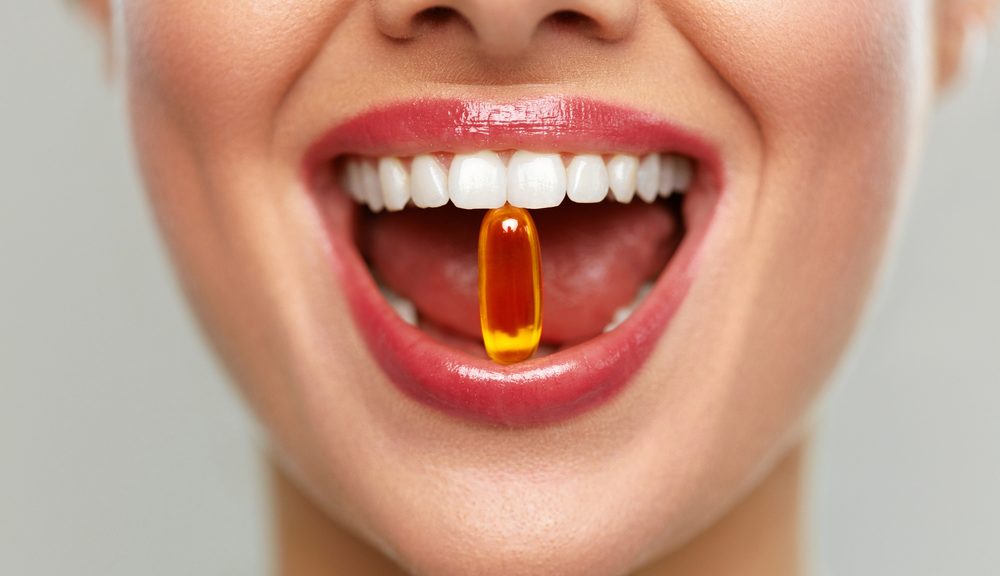
Six Skin Supplements
With so many formulations to choose from, which supplements can help you achieve healthy skin? Esther Mills-Roberts reveals all…
It’s easy to think that skin is simple, but in truth, it’s a brilliant feat of bioengineering. Human skin acts as a barrier, helping to protect the body from physical damage, harmful substances, microbial invasion and radiation. The skin also helps to keep water loss to a minimum, regulate body temperature and maintain healthy immune function.
The skin can be negatively affected by UV radiation, pollutants, harsh weather conditions, medications, hormones and stress, and positively influenced by many factors – including good nutrition. It’s easy to see why supplementation is so popular in the quest for clear and glowing skin.
Crazy about collagen
Once the reserve of the celebrity few, collagen formulations became widely available 10 years ago. Based on using bone-broths and gelatine to provide the amino acids (protein building blocks) for collagen formation, advanced collagen technologies brought us bioactive collagen peptides as a new tool for skin health. These collagen peptides have been shown in studies to help reduce the appearance of fine lines and wrinkles. Available as pre-made collagen shots, capsules and in powder form, look for a formulation that is specifically designed for skin health. It’s always worth asking what intake is best, as formulations vary in terms of strength and type of collagen.
Nutritional oils
In the 80s and 90s, the superstars of skin health were evening primrose oil and borage oil (also known as starflower). Rich in omega-6 essential fatty acids, these oils were recommended to help maintain healthy skin, hair and nails. These days, a more balanced approach is taken, with experts recommending a combination of omega oils – including 3, 6 and 9 from plant and fish sources. Fish oils and hemp oil – both rich sources of omega-3 – are regularly used to counter-balance the high levels of omega-6 oil often found in Western diets. This considered, many skin formulations include a wide range of nutritional oils within one formulation.
Vitamins A, C, E and zinc
Antioxidants have always been popular for skin health due to their ability to fight free radicals, which can damage skin cells. Vitamin A is known to be useful for skin health and has been used for decades for the management of acne and oily skin conditions (do check with a practitioner before doing this). Vitamin C helps with the formation of connective tissue and is needed for the formation of collagen, which provides a matrix upon which skin is built. Vitamin E is needed for skin cell membranes and zinc is known to help with skin scarring.
Probiotics
It might seem strange at first to think that taking a supplement of probiotics could help with skin health. As well as an external toxic load, there can be an internal one from poor dental health and gut motility, and these wonderful gut microbes can help. They also help with the production of B vitamins, which are vital for healthy glowing skin. For this reason, supplementing with a formulation that includes a wide variety of bacterial species is most useful – whether this is in drink form, tablets, capsules or powders.
Milk thistle
For hundreds of years, milk thistle has been known to help in the management of inflammatory skin conditions. It’s also a common herb used for detoxification, making it useful to include as part of a detox programme. Milk thistle, coupled with a diet based on fresh and low allergenic eating, is a great way to work on skin health. Naturopaths and functional medicine practitioners often report an improvement in skin once people with food sensitivities and allergies have removed what they are sensitive/allergic too from their diet, such as gluten and dairy.
Hyaluronic acid
Hyaluronic acid is a highly popular skin health supplement, being dubbed the water magnet for skin, withholding moisture and helping to firm and tone it. Studies have shown that supplementation with hyaluronic acid can not only help with skin hydration, but with elasticity (helping to reduce the appearance of fine lines and wrinkles) and repair of UV damage too.
About Esther Mills-Roberts
Esther Mills-Roberts is a degree-trained nutritional biochemist and registered nutritionist. She has a private practice in Stratford Upon Avon.
Esther studied nutrition and biochemistry at Nottingham University and worked for a number of nutritional supplement companies before eventually setting up as a consultant on nutritional marketing, PR, quality standard, labelling and new product development.
She has also lectured and educated many about the science of nutrition, written for a number of health titles, written her own books and has featured on both TV and radio. Esther is a member of the Guild of Health Writers, London.
